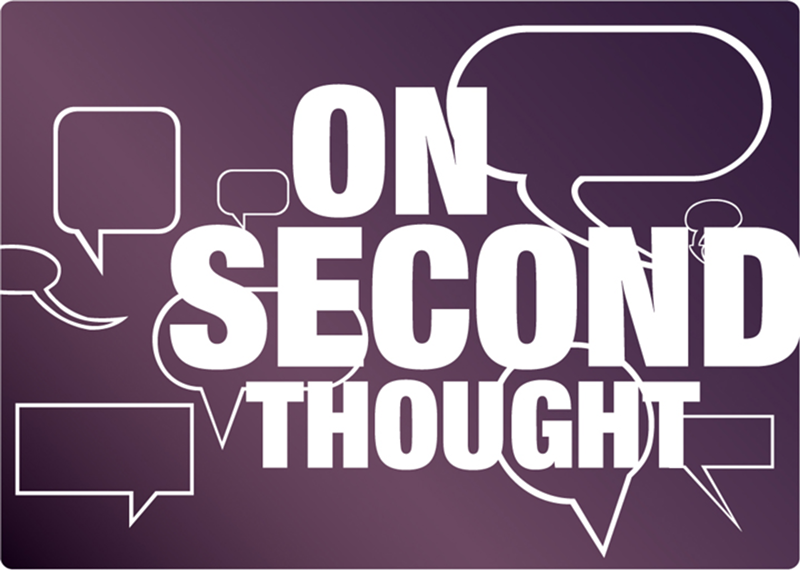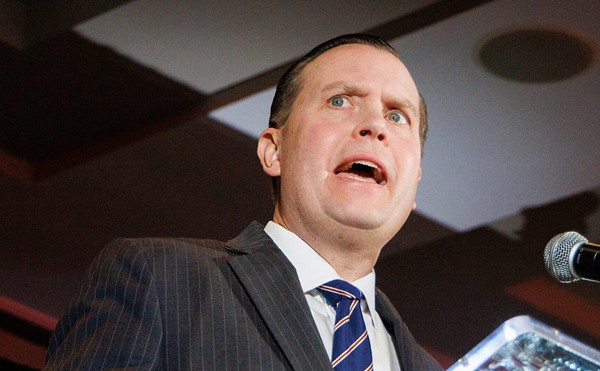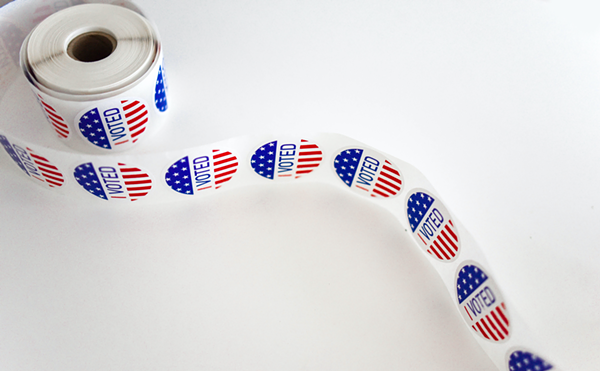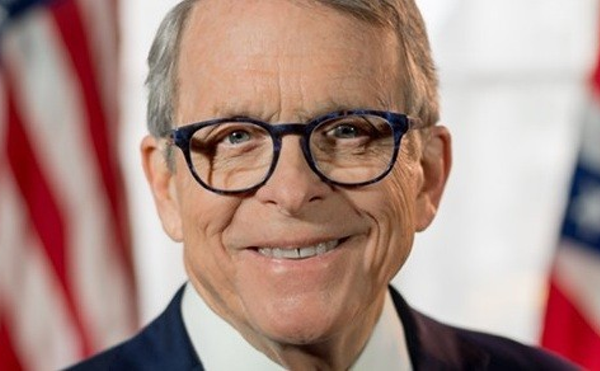Given the news media’s historic reticence about admitting screw-ups, I have no idea whether we are more or less ethical than in recent decades.
What has changed is the likelihood that unspeakable puffery, blatant conflicts of interest, errors that affect a story’s accuracy or meaning, deliberate falsehoods, plagiarism, image fakery and bias are likelier than ever to be caught and publicized. Credit the Internet with that.
The once-local correction now risks going viral.
The most recent ethical pratfall involves Vogue magazine. Last year, it ran a fawning profile on Asma al-Assad, wife of the Syrian president. It called her a “Rose in the Desert” — “glamorous, young, and very chic — the freshest and most magnetic of first ladies.”
Since it was published, Vogue has noticed events beyond the catwalk. Husband Bashar al-Assad’s forces have killed thousands of civilians in an attempt to crush what began as a peaceful protest for greater democracy.
The European Union restricted Asma al-Assad’s travel and assets, along with others in the Syrian regime.
Wives of British and German U.N. ambassadors petitioned her to “speak out for peace, to ask for a stop to the bloodshed.” They asked Asma al-Assad to “Make your voice heard! Stop being a bystander. It is your duty to prevent the breakout of civil war as a woman, as a wife and as a mother of young children yourself.” The French news agency, AFP, says the online petition has more than 34,000 signatures.
Embarrassed editors took the profile down from Vogue’s website. I found nothing there to alert readers to what transpired. That silence is worse than the tone of the profile of a murderous dictator’s fashionista wife. And it’s all over the Internet.
We have a different ethical lapse in a recent Enquirer puff piece on 3CDC’s work in Over-the-Rhine. Typical of upbeat stories involving 3CDC, it failed to mention that Enquirer Publisher Margaret Buchanan is the 3CDC executive committee member charged with publicity and marketing the private development corporation.
My CityBeat colleague Kevin Osborne reported this ongoing conflict of interest in his Porkopolis column and elicited a response from Buchanan: “Over several years, The Cincinnati Enquirer has fully covered the pro’s and con’s (sic) of 3CDC’s development efforts in Over-the-Rhine for our readers and we are very proud of that coverage. As publisher, I sit on 3CDC’s executive committee — and did not influence any of the reporting on this issue. Our editor is completely responsible for all editorial decisions. Typically my participation on this committee is disclosed, although it was overlooked for the article that ran on Sunday, April 15. It will continue to be disclosed in the future.”
Osborne fact-checked her response. He said a search using the ProQuest database of The Enquirer’s archives found 481 articles and news briefs mentioning 3CDC since the group began its efforts in 2004, although some might be duplicates. Of the 481 entries, Buchanan was mentioned in 15.
Buchanan’s denial of a conflict of interest doesn’t pass the smell test. No reporter could get away with this.
I don’t assume she ordered her name left out, but if Buchanan felt she was bound by the spirit — if not the letter — of Gannett’s ethics policy, she might leave 3CDC’s executive committee and surely would eschew responsibility for 3CDC publicity.
Now, it’s up to Buchanan to make sure her staff understands her affirmation of candor in 3CDC stories. If her business reporters want a model, they need only read Cliff Peale’s Enquirer stories about the University of Cincinnati board on which Buchanan also sits. He mentions her role when it’s germane.
Buchanan isn’t the first Enquirer publisher to have conflicts of interest that would have been unacceptable among their journalists. Most publishers take a more or less active role in local affairs beyond having the final say on what unsigned editorials promote or bemoan.
Publisher Harry Whipple was so supportive of the National Underground Railroad Freedom Center that he housed its startup headquarters in the room next to his Enquirer office. For years, stories that might have saved the center from some of its early pratfalls went unwritten or unpublished. Even positive stories deemed untimely by museum leaders could be quietly spiked on the local desk.
Well before that, publisher Frank Dale was also president of the Reds and an active force in the Chamber of Commerce. That was benign compared to the fundraising Committee to Re-Elect the President he organized for Nixon. It became infamous later as CREEP during Watergate.
Curmudgeon notes:
• Ohio State Sen. Bill Seitz was Poster Boy for a recent New York Times story on the role American Legislative Exchange Council, (ALEC), which helped bring “stand your ground” laws and other right-wing legislation to so many states. Seitz, a Republican from Green Township, was identified as the ALEC member who enlisted the group’s help in emasculating General Assembly efforts to recover fraudulent payments to businesses.
Meanwhile, Procter & Gamble reportedly is the 13th major corporation to drop its ALEC membership as criticism of the group continues.
• It is sad to see David Holthaus move from reporting to editing The Enquirer’s opinion pages. What a waste. We lose a smart reporter and gain nothing, unless this frees him to do the kind of reporting and writing that daily journalism prevents.
Daily newspapers long have acted as if their unsigned editorials and political endorsement — ultimately the voice of the publisher — matter. They rarely do but when the paper’s opinion does influence people, it’s usually to confirm biases we readers bring to the page. More importantly, editorials should reflect strong reporting that the paper published, and reporting is what every paper always needs most.
• Can we drop “leader of the free world” when referring to President Obama (or any other president)? That was politically acceptable when so many people lived under Communism. It makes no sense now that most of the nasty dictatorships are U. S. allies or at least beyond our active concern: Zimbabwe, Belarus, Ukraine, Iran, Saudi Arabia, Sudan, Central African Republic, China, Vietnam, Pakistan, Afghanistan, the Central Asian ‘Stans, etc.
• This from Jimromenesko.com: “When a county property assessor named Bill Boner was accused of sexual harassment, Murfreesboro Post managing editor Michelle Willard knew her staff had to ‘get all of the cheesy headlines out of their system’ before getting serious about the story.” Saying they had a lot of fun, she had them collect their unprintable headlines. The best included:
“Boner says women faking it”
“Female workers say Boner intimidated them”
“Boner taking it hard”
Romenesko continued: “But staff writer Marie Kemph — the reporter on the Boner beat, if you will — says she’s working hard to play it straight. ‘It’s not a funny topic . . . so I try to keep it serious. A lot of the residents are very offended by what he’s supposedly done, and they’re taking it very seriously. We’re a conservative town. This is the kind of thing that people think would happen in Nashville.’ The story ran with the headline, ‘Boner rejects sexual harassment allegations.’”
Other headlines included on Romenesko’s blog were “Boner faces allegations head on,” “Boner hard on employees,” “Boner keeps stiff upper lip,” “Ladies tough on Boner,” “Sticky situation for Boner,” “Boner erupts concerning allegations,” “Boner emerges to fight accusations,” “EEOC to probe Boner,” “Charges give Boner headache,” “Female workers say Boner intimidated them,” “Boner: It’s rough,” “Boner: It’s hard . . . on my wife”, and “Maybe I’m being to (sic) hard on him. Ah, poor little Boner.”
• I have no idea why 30-something Georgetown law student Sandra Fluke arouses men and women at Fox News, but it doesn’t end. First, Rush called Fluke a “slut” and “prostitute” for invoking her First Amendment right to petition the government (about tax-paid contraception). Then Fox News’ Monica Crowley dipped into homophobia when Fluke announced her engagement to her longtime boyfriend. “To a man?” tweeted Crowley? Crowley later attempted a Rush-like crawl back.
The damage is done. Rush and Crowley know that. Fox News — the brain of the GOP — knows that. These weren’t slips of the tongue. Their “oops” aren’t nearly as sincere.
• I’ve written about the core value of copy editors on a local daily: they catch and correct errors and eliminate libels. The rest of the time, they’re trying mightily to make reporters look better and to write accurate headlines that will bring readers to our stories.
Some copy editors are better than others. Years ago, The Enquirer fired a copy editor for failing to catch the libel of a public figure. It made it into print and drew the credible threat of a costly libel suit. The reporter — who lifted the offensive phrase from an earlier and unchallenged Enquirer story — wasn’t fired. Apparently it had gone unnoticed by editors and the subject years earlier.
Today, in the search for profits, copy editors are vanishing with their trove of local knowledge. That’s important in a community like Cincinnati, where skeptics wonder about the big stories when the paper can’t distinguish between Clifton and Clifton Heights, or Over-the-Rhine and the West End. That may seem ancient but so are many of our dwindling newspaper readers.
Now, Gannett is consolidating some editing in regional centers and the local link is being lost. The Enquirer will be poorer for this.
• The Poynter Institute’ website reports that Enquirer editing alumnus John McIntyre, who built a national reputation as head of the once-strong Baltimore Sun copy desk, says copy editors are becoming history because of “sharp-pencil corporate functionaries who do not believe in editing.”
His blog recently recounted three “heroic moments of the craft.” One was from his days on The Enquirer copy desk:
“On an otherwise uneventful evening in May 1982, the copy desk at The Cincinnati Enquirer was at work on the first edition. Webb Matthews was following the wire services. Webb was the sort of polymath who crops up on copy desks. He knew more about U.S. vice presidents (and had stronger opinions about them) than any man ought to. He was writing, in his free time, a verse drama in heroic couplets after the manner of Dryden. As wire editor, Webb was monitoring the incoming news from the wire services to which The Enquirer subscribed, alerting editors on the news desk to updates and breaking news. An announcement came from the Associated Press that Hugh Beaumont, who played Ward Cleaver for 235 episodes of Leave It to Beaver, had died. Webb sang out, his voice carrying through the newsroom: ‘June, I’m dead!’”






